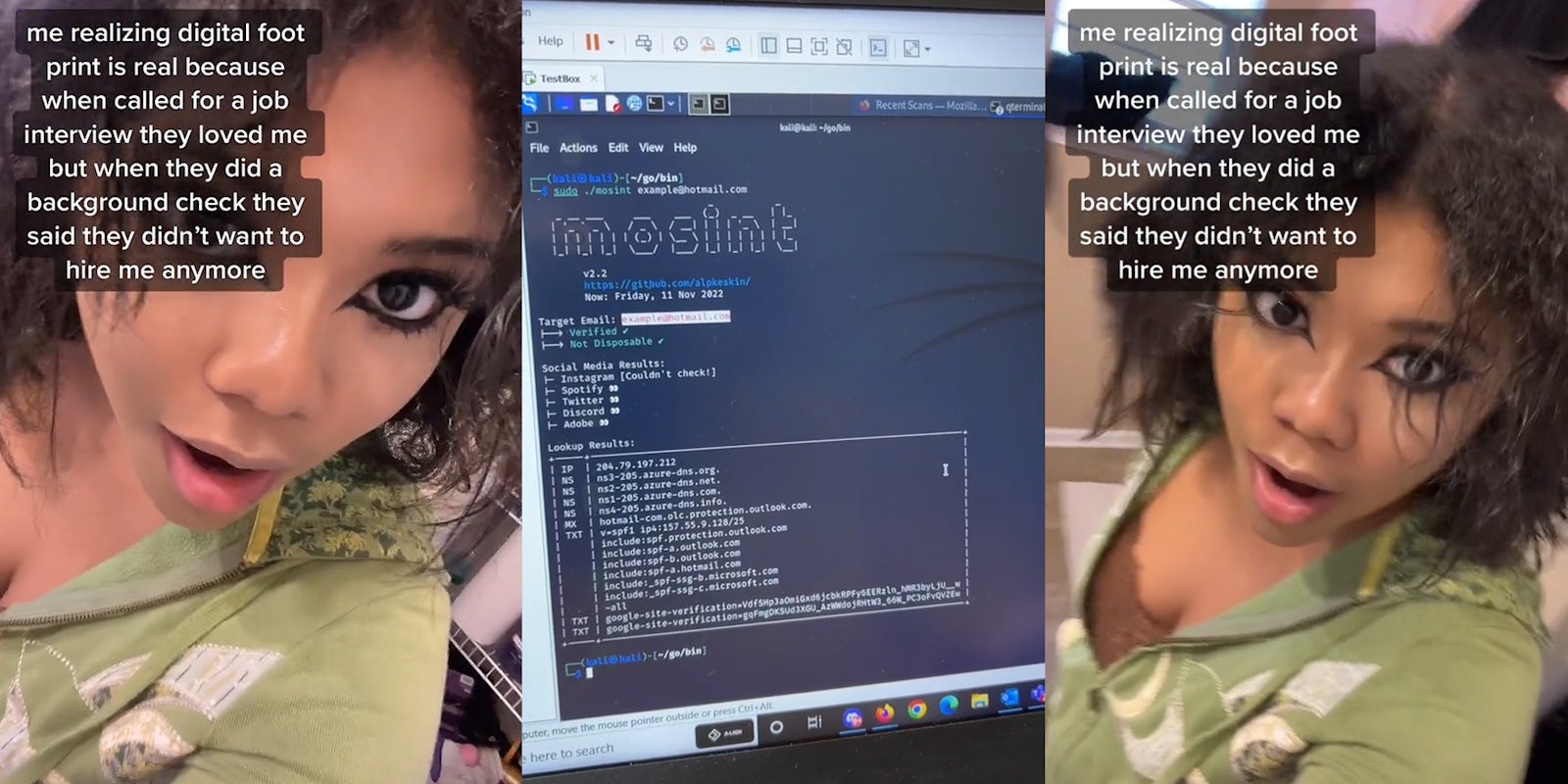Nowadays, it’s becoming increasingly common for employers to check a candidate’s social media profiles before hiring. In a survey by CareerBuilder in 2017, 70% of employers claimed they checked an applicant’s social media profiles as part of the application process. A full 54% of employers said they’ve even tossed out applications based on what they’ve found on social media.
The big question is, how does an employer find someone’s social media? Now, a user on TikTok has gone viral after explaining just how a potential employer may come across your social media.
Stitching a video from another creator (@moosquatch69) who claims they lost out on a job due to the employer checking out their social media profiles, TikTok user and cybersecurity worker Chris (@chrisjr404) shows off two tools an employer might use to monitor someone’s online presence. All the tools need is the applicant’s email address or username. His video has received over 8.5 million views.
@chrisjr404 #stitch with @shoomew here is how a company can find your digital footprint #tech #techcareer #techtok #technology #cyber #cybersecurity ♬ Dracula – Horror Sound FX – Merrick Lowell
The two tools Chris demonstrates are Mosint and Nexfil, though there are many other applications and third-party companies that can perform similar searches.
With Mosint, an employer can input an email address and see numerous accounts tied to the address. For Nexfil, an employer must input a screen name, at which point the program scans the internet for accounts on various sites matching that name.
In the comment section, users were rightfully disturbed by what they saw, with many saying that a company that does this is not worth working for.
“If a company digs that deep on me I don’t want to work there anyway,” shared a user. “I can’t have a personal life away from work?”
“Eventually they’re gonna run out of candidates because what 30 yr old in 2030 isn’t going to have a questionable digital footprint??” questioned another.
“it should be illegal for a company to look at what you do in your personal time,” stated a third. In a follow-up video, Chris agreed before demonstrating another search tool that employers may use to gather information.
@chrisjr404 Replying to @moosquatch69 here is how a company can find what your posting online #tech #techcareer #techtok #technology #cyber #cybersecurity ♬ original sound – chrisjr404
Tools like these caused TikTokers to recommend distancing their personal lives online from what their employer can find.
“So we need to give them a different email is what I’m hearing lol,” wrote a user.
“You should have a private email specifically for work for this very reason (also, a specific username),” advised a second. “Don’t use them anywhere else.”
In the United States, it is legal for employers to screen social media usage, whereas in the European Union, employers must require “a ‘legal ground’ before checking the social media profiles of potential employees,” per the Irish Times.
“The regulators add that data collected from a search must be necessary and ‘relevant to the performance of the job,’” writes author Paul McClean.
For the time being, Chris recommends that American job candidates delete unneeded social media and set the accounts they want to keep to private, changing the name to ensure they cannot be identified.
The Daily Dot reached out to Chris via email.



